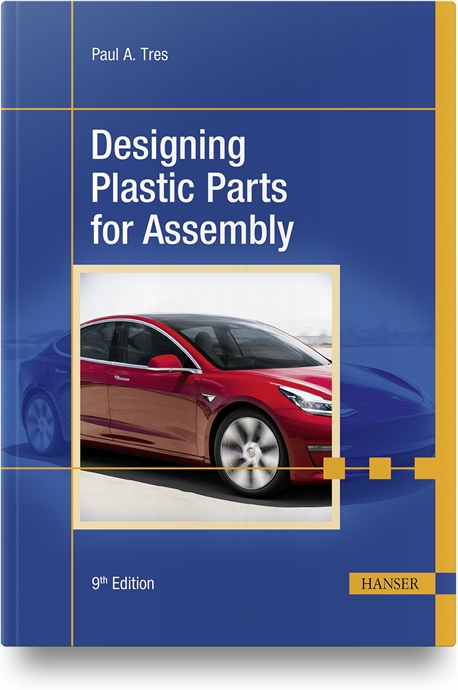Web Extra: Plastic Fasteners for Assembly
Durable plastic fasteners are recommended for assemblies where metal fasteners would be either too heavy for the component or too abrasive for the component material. Printed circuit boards are a common application.
 Made of corrosion-resistant Nylon 6/6, plastic fasteners are recommended for assemblies where metal fasteners would be either too heavy for the component or too abrasive for the component material. Printed circuit boards are a common application.
Made of corrosion-resistant Nylon 6/6, plastic fasteners are recommended for assemblies where metal fasteners would be either too heavy for the component or too abrasive for the component material. Printed circuit boards are a common application.
“Plastic fasteners are less conductive than metal and resist vibration better,” says Bruce Sanders, sales manager for Micro Plastics Inc. “These and other benefits are the reasons many manufacturers are using plastic fasteners more often.”
Micro Plastics makes several types of one-piece plastic fasteners, most notably push-in fasteners, which are reusable, and poly drive rivets, which are not. The fasteners are pushed into a prepunched hole by hand or with a mallet. Poly drive rivets may be inserted by hand or with a pneumatic hand tool, also made by Micro Plastics, that delivers 50 to 60 psi of force. The tool’s mandrel opening accepts rivets with an OD from 0.075 to 0.093 inch.
Sanders says push-in fasteners let assemblers quickly and easily join sheets of plastic or any other thin, lightweight material. Standard head diameters range from 0.2 to 0.75 inch; lock lengths are 0.18 to 1.016 inches.
The fasteners have short legs that are compressed before insertion but expand afterwards, locking the fastener into place. The fasteners resist vibration, abrasion and corrosion, and also can be used as glides or bumpers.
Besides plastic sheets, Poly Rivets can be used in sheet metal, fiberglass, circuit boards and composite materials. The rivet’s legs are longer than those of the fastener, but, likewise, are compressed before insertion in the hole and expand afterward to secure the rivet.
The rivets can withstand extreme vibration conditions and resist corrosion and cathodic transfer. Standard head diameters range from 0.2 to 0.75 inch; lock lengths are 0.437 to 1.016 inches. However, rivet head styles, diameters and lengths can be customized.
“These rivets can join a material stack up to 1-inch thick,” says Sanders. “They’ve been used to fasten liners in things as diverse as trucks and luggage racks.”
The company also makes blind rivets, anchor rivets, dome and tack fasteners, clips and grommet nuts.

An assembler uses a pneumatic hand tool to insert lightweight but durable plastic fasteners into a printed circuit board. Photo courtesy Micro Plastics Inc.
“Plastic fasteners are less conductive than metal and resist vibration better,” says Bruce Sanders, sales manager for Micro Plastics Inc. “These and other benefits are the reasons many manufacturers are using plastic fasteners more often.”
Micro Plastics makes several types of one-piece plastic fasteners, most notably push-in fasteners, which are reusable, and poly drive rivets, which are not. The fasteners are pushed into a prepunched hole by hand or with a mallet. Poly drive rivets may be inserted by hand or with a pneumatic hand tool, also made by Micro Plastics, that delivers 50 to 60 psi of force. The tool’s mandrel opening accepts rivets with an OD from 0.075 to 0.093 inch.
Sanders says push-in fasteners let assemblers quickly and easily join sheets of plastic or any other thin, lightweight material. Standard head diameters range from 0.2 to 0.75 inch; lock lengths are 0.18 to 1.016 inches.
The fasteners have short legs that are compressed before insertion but expand afterwards, locking the fastener into place. The fasteners resist vibration, abrasion and corrosion, and also can be used as glides or bumpers.
Besides plastic sheets, Poly Rivets can be used in sheet metal, fiberglass, circuit boards and composite materials. The rivet’s legs are longer than those of the fastener, but, likewise, are compressed before insertion in the hole and expand afterward to secure the rivet.
The rivets can withstand extreme vibration conditions and resist corrosion and cathodic transfer. Standard head diameters range from 0.2 to 0.75 inch; lock lengths are 0.437 to 1.016 inches. However, rivet head styles, diameters and lengths can be customized.
“These rivets can join a material stack up to 1-inch thick,” says Sanders. “They’ve been used to fasten liners in things as diverse as trucks and luggage racks.”
The company also makes blind rivets, anchor rivets, dome and tack fasteners, clips and grommet nuts.
Looking for a reprint of this article?
From high-res PDFs to custom plaques, order your copy today!






